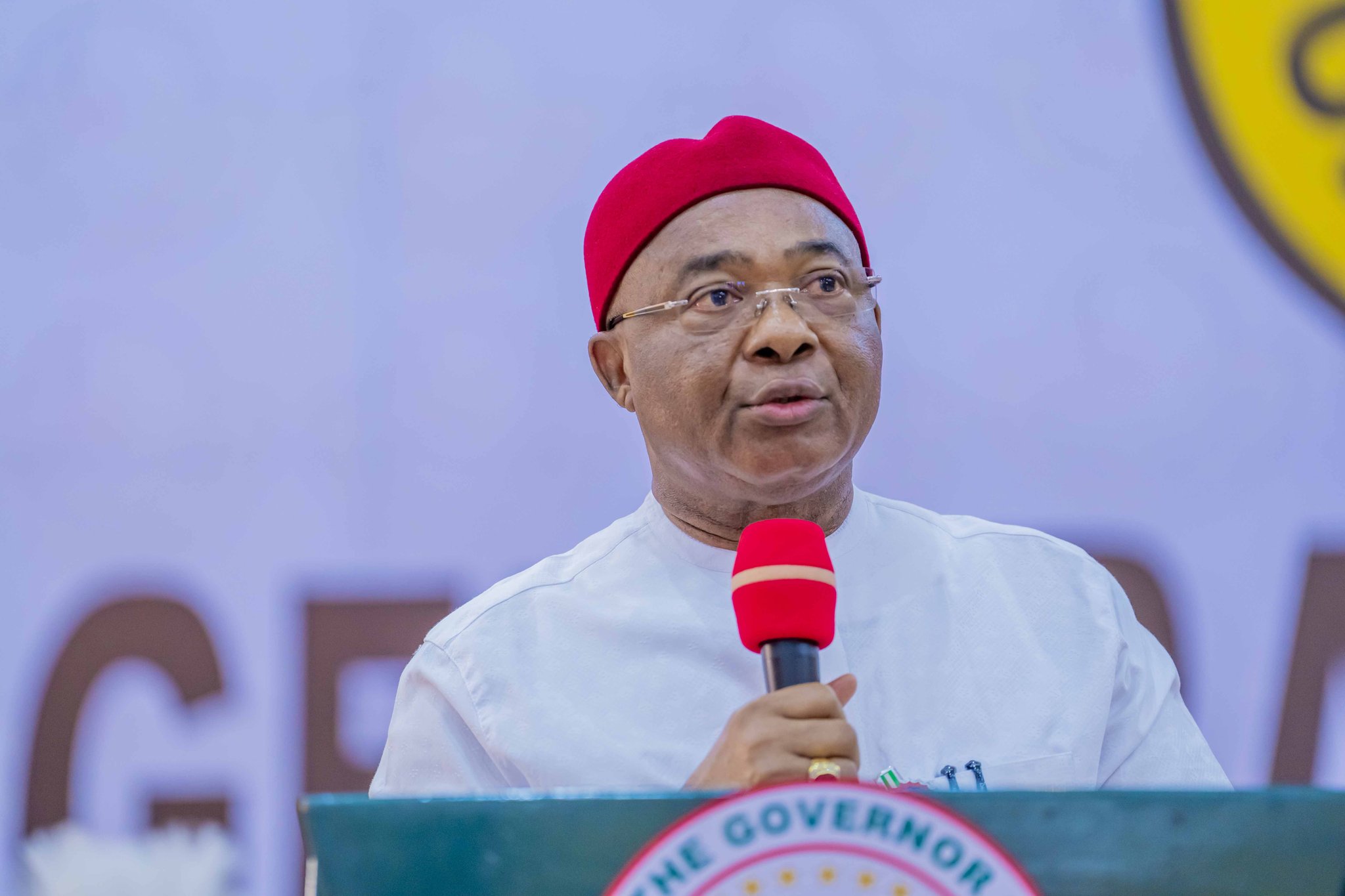Electricity: FOCPEN raises concerns over proposed bill, urges collaboration
The Forum of Commissioners of Power and Energy in Nigeria (FOCPEN) has expressed concern over the proposed Electricity Act (Amendment) Bill, 2025, currently undergoing deliberation in the Nigerian Senate.
A statement on Wednesday jointly signed by Eka Williams, Commissioner of Power and Renewable Energy, Cross River State who doubles as chairman of FOCPEN and Omale Omale, Commissioner of Power, Renewable Energy and Transport, Benue State who doubles as Secretary of FOCPEN said this unexpected legislative move comes barely two years after the landmark Electricity Act 2023 was signed into law.
It is also a period during which many states have only just begun to establish and operationalise their electricity markets under the new decentralised framework.
On Tuesday last week, the senate commenced a legislative process to overhaul the Electricity Act, 2023, with the passage of the Electricity Act (Amendment) Bill, 2025, for second reading.
The bill, sponsored by Enyinnaya Abaribe, senator representing Abia south, seeks to address the lingering crisis in Nigeria’s power sector by clarifying regulatory roles, tackling vandalism, and streamlining governance across the electricity value chain.
Presenting the bill, Mr Abaribe, who chairs the senate committee on power, said the proposed amendment was a response to emerging challenges in the sector following the devolution of electricity powers to states in the 2023 constitution.
Several lawmakers backed the amendment and called for stronger punitive measures to curb electricity theft and sabotage.
In its statement, FOCPEN notes with dismay the absence of any prior consultations with state governments, or their relevant commissioners and state electricity regulatory bodies, during the drafting and presentation of this crucial amendment bill on the floor of the Senate.
“This oversight is particularly concerning given the significant strides made in decentralising Nigeria’s electricity sector,” the statement said.
FOCPEN said the proposed Electricity Act (Amendment) Bill, 2025, is an attempt at a “backdoor amendment” of the 1999 Constitution of the Federal Republic of Nigeria (as amended) by seeking to reintroduce constraints and ambiguities that were expressly removed by the fifth alteration of the Constitution.
In addition, the forum said several provisions of the amendment bill egregiously violate foundational principles of true constitutional federalism, and threaten the successful implementation of a decentralised electricity market.
“The amendment bill, if passed, will create a constitutional conflict between the federal government and states, as well as legal and regulatory conflicts between federal and state regulators, undermining the principle of cooperative federalism and potentially inviting judicial challenges.
“The amendment bill, if passed, will further exacerbate the financial burden on the federal government and states, undermining efforts to achieve a sustainable and self-financing power sector,” the statement said.
It explained that the amendment bill proposes the creation of numerous federal institutions, agencies and funds, whose operational and administrative costs are to be directly passed on to electricity consumers, thus resulting in higher electricity tariffs for consumers.
In addition, it said the bill specifies mandatory contributions from consumers and market participants to fund the Power Consumer Assistance Fund (PCAF).
“Consumers, including those in states with cost-reflective tariffs, would bear the cost of subsidies through tariff surcharges, even in the face of widespread non-payment and market losses. By this provision, the amendment bill would also transfer over N5 trillion in unpaid subsidies to electricity consumers, worsening affordability and equity in electricity access.
FOCPEN added that the amendment bill, if passed, will create policy, legal and regulatory conflicts between federal and state agencies / regulators, significantly increasing regulatory uncertainty and risks for both federal and state-level investors in the electricity market.
“The bill will further exacerbate administrative bottlenecks in the power sector by undermining the autonomy of state electricity regulators, creating overlapping jurisdictions and unclear regulatory boundaries, imposing new levies and compliance burdens on market participants within state electricity markets, thus raising the cost of doing business in the power sector and creating conflicting mandates and diluting accountability.
Inevitably, it said the amendment bill will hinder public and private sector investments particularly in state electricity markets, and stall the momentum of recent reforms by President Bola Tinubu in the power sector.
“The bill seeks to bestow upon Nigerian Electricity Regulatory Commission (NERC) an overriding regulatory jurisdiction over electricity distribution, electricity distribution tariff design and implementation, and consumer protection within state electricity markets and centralise the regulation and enforcement of technical standards within states electricity markets under the Nigerian Electricity Management Services Agency (NEMSA).
“The total lack of engagement and consultation with states, who are now primary drivers of electricity sector development, in the drafting of this amendment bill is a serious concern. Effective and sustainable reforms require collaborative efforts between federal and sub-national governments. The amendment bill threatens to dismantle the progress and positive reforms initiated by the Electricity Act 2023, which has been widely hailed as a pivotal step towards a more reliable and efficient power sector,” the statement said.
FOCPEN called on the National Assembly to halt further consideration of the bill, noting that electricity is a concurrent legislative matter under the 1999 Constitution.
The forum advocates that any future considerations for an amendment of the Electricity Act 2023, must be preceded by broad-based consultation and collaboration with state governments to ensure that federal legislation complements, rather than undermines, nascent state electricity markets.
“The Forum of Commissioners of Power and Energy in Nigeria holds the National Assembly in high esteem and remains committed to working with all stakeholders, including the Nigerian Senate, to foster a robust, constitutionally compliant, and financially viable electricity sector that serves the best interests of all Nigerians. We reiterate that the Electricity Act 2023, as currently enacted, provides the necessary framework for achieving these objectives.”
Support PREMIUM TIMES' journalism of integrity and credibility
You may also like...
Diddy's Legal Troubles & Racketeering Trial

Music mogul Sean 'Diddy' Combs was acquitted of sex trafficking and racketeering charges but convicted on transportation...
Thomas Partey Faces Rape & Sexual Assault Charges

Former Arsenal midfielder Thomas Partey has been formally charged with multiple counts of rape and sexual assault by UK ...
Nigeria Universities Changes Admission Policies

JAMB has clarified its admission policies, rectifying a student's status, reiterating the necessity of its Central Admis...
Ghana's Economic Reforms & Gold Sector Initiatives

Ghana is undertaking a comprehensive economic overhaul with President John Dramani Mahama's 24-Hour Economy and Accelera...
WAFCON 2024 African Women's Football Tournament

The 2024 Women's Africa Cup of Nations opened with thrilling matches, seeing Nigeria's Super Falcons secure a dominant 3...
Emergence & Dynamics of Nigeria's ADC Coalition

A new opposition coalition, led by the African Democratic Congress (ADC), is emerging to challenge President Bola Ahmed ...
Demise of Olubadan of Ibadanland
Oba Owolabi Olakulehin, the 43rd Olubadan of Ibadanland, has died at 90, concluding a life of distinguished service in t...
Death of Nigerian Goalkeeping Legend Peter Rufai

Nigerian football mourns the death of legendary Super Eagles goalkeeper Peter Rufai, who passed away at 61. Known as 'Do...




